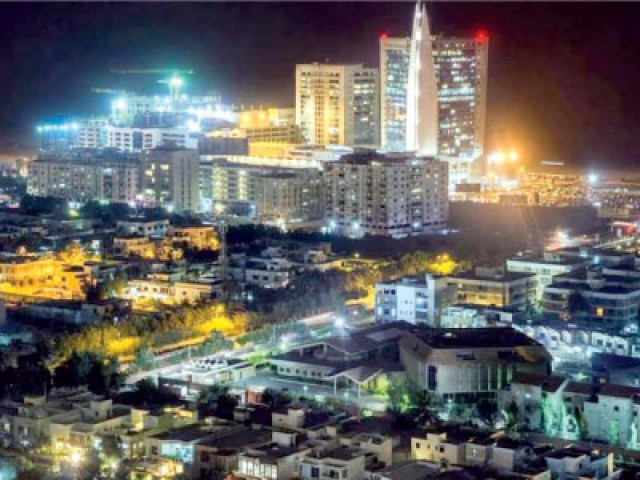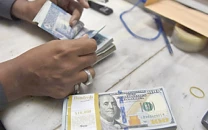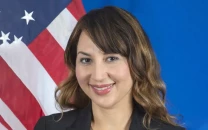When economic going gets tough
Govt must steady boat by shoring up FX reserves, stabilising currency market

Pakistan’s economic fragilities are getting exposed day by day. Every Taimur, Danial and Haris are talking about inflation, dollar rate, losses and the IMF. Admittedly, some of the blame is apportioned to the rising global prices – receding lately, thankfully – while most of our misery is self-imposed. We have just delayed taking right decisions for too long.
The previous notions about Pakistan, such as “too big to fail”, “a nuclear country won’t ever default” and “this too shall pass”, are being tested. We are at the edge. Readers must memorise that it’s been four months since we deviated from the IMF’s plan initially due to freeze on energy prices.
That is all that has taken to bring us to the edge. We are oscillating between lenders’ doors now. Lenders want us to get clarity from “friendly countries”. Friendly countries, on the other hand, want us to go back to the IMF’s dictated discipline. Our economic policies – or the lack thereof – have lost credibility globally that our global debt bonds are now trading half the price. Credit should be given to Miftah and team SBP. There has been an aggressive “reassurance” push to present Pakistan’s case and allay market fears.
Finance minister has to repeatedly say “pressure on the rupee will vanish in a few weeks”, “Pakistan will not default”, “all IMF conditions are met”, “IMF programme on track”, etc. On the other hand, the SBP’s acting governor is omnipresent on Financial Times, Bloomberg, Reuters, podcasts, etc. A lot of appreciable efforts are being put to assure markets in this period of trial when the IMF’s agreement prevents the SBP from intervening in the market. Hence, the PKR has shot from Rs209 to nearly 245 per USD in less than a month.
We can expect another round of inflation from August. There goes the benefit of moderating commodity prices. I am certain that the sadness is prevailing within the SBP and economic policymakers. It is shamefully embarrassing for a country of enormous talent – utilised and unutilised – that SBP’s acting governor has to resort to comparing ourselves with the globally insignificant economies; Ghana, Zambia, Tunisia and Angola.
Your writer is amused and agrees that we’re not as vulnerable as these economies, if our comparison is starting from the bottom of the ranks. It’s a moment of realisation but the nation and policymakers are asleep. Not the top man. To fight for country’s economic defence, according to Nikkei Asia, the chief has had to step in. General Qamar Bajwa has requested US’s Wendy Sherman for early disbursement of the IMF loan tranche.
Note, the tranche is on way already at the end of August but surely we are finding it difficult to wait for another four months. It’s a collective failure of people in any organisation/ government that we have to utilise the top man’s good offices to get the work done. This surely would entail political costs. With the recent change in the Punjab government, the PTI has got some face saving whereas the PDM still appears to be split over whether to continue the remaining term or call for early elections.
In the political “gang war”, the civilians are getting injured, bruised, permanently scarred and forced to leave the country. We are going to have another wave of brain drain as educated – as well as blue collar – workers realise the crumbling value of their skills in dollar terms. The PTI may not mind a couple of months to strengthen the grip on Punjab politics to show progress while the PDM’s focus is back on the PTI’s election funding case.
The chess continues despite the bombardment. While problems are aplenty, there are painful but straight forward solutions as well. Firstly, you have to have a government for five years. The sooner the elections are called and the winning party should present their fiveyear plan. We have to put economic progress ahead of personal goals. Meanwhile, we should steady the boat by shoring up FX reserves and stabilising energy and currency markets.
Secondly, there must be an embedded charter of economy for 10 years signed by all political leaders. a) Reduce debt-to-GDP ratio, b) reduce external debt-to-GDP ratio, c) eliminate power/gas subsidy, d) zero losses from stateowned entities (SOE), e) enhance tax-to-GDP ratio, f) expand direct tax-to-GDP ratio, g) accelerate agricultural yields, h) reduce losses in energy DISCOs, i) quadruple IT exports, j) set up world-class universities on STEM, k) incentivise import substitution and export industries, l) digitise tax collection and ease of business, m) revamp railway lines to high-speed, n) accelerate domestic gas/ oil exploration activities, o) prevent undue interference from agencies in bureaucracy, p) put corruption cases to logical conclusion swiftly, q) provide funding to local bodies, r) conserve inefficient use of water, s) prevent export of primary goods, t) ensure digital skills are part of curriculum, u) bring FDI from East and West, v) be part of global value chains, w) curtail volatility in PKR, x) moderate swings in interest rate, y) improve public transport, z) penalise deviations from above.
Pakistan’s problems have solutions. What is missing is the political will and farsightedness. Unfortunately, the policymakers have continued to prioritise themselves over Pakistan. Belonging to the elite class, they themselves are hardly aware of the miseries of common man. Sri Lankan masses charged a revolution due to the difficulties being faced by them and the delusional disconnect of the rulers.
The smiles on politicians’ faces show their economic disconnect with the inflation rates. Pakistan has never been this close to poverty. If we fail to fix the house again, the next fall will be similar to Sri Lanka’s. It’s definitely not over but millions of miles to go before we sleep.
THE WRITER IS AN INVESTMENT SPECIALIST WITH KEEN INTEREST IN POLITICAL ECONOMY



















COMMENTS
Comments are moderated and generally will be posted if they are on-topic and not abusive.
For more information, please see our Comments FAQ